Hindutva is dismantling Indian democracy in plain sight
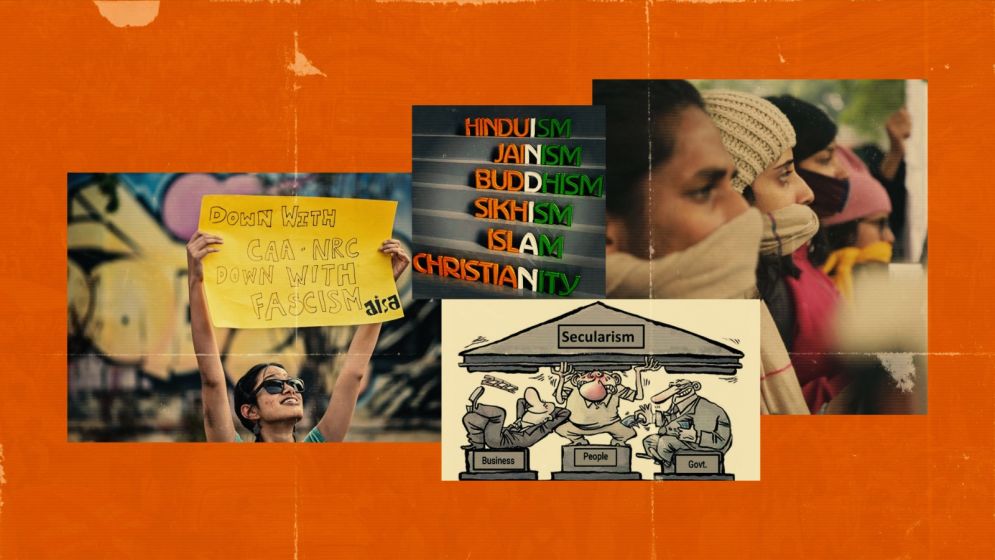
As a human rights advocate and a political analyst based in Bangladesh, I have long studied the rise of exclusionary ideologies across the world. But seldom have I seen such chilling echoes of past atrocities as I now observe unfolding in India.
There is an increasingly uncomfortable parallel between Hindutva—the Hindu nationalist ideology that underpins India’s current ruling party—and Zionism in its ethnonationalist form.
Both ideologies deploy religious identity as a political tool, prioritizing one group’s dominance over others. Both reimagine history through a lens of grievance and purity.
And both, worryingly, are showing signs of tipping into systemic persecution.
Genocide Watch, an organization with a credible track record in forecasting mass atrocities, has classified India at Stage 8—Persecution—on its genocide alert scale regarding its 200 million-strong Muslim minority.
It is a dire warning that should command international alarm. Yet, global silence persists. For those of us in the region who have witnessed the costs of ethno-religious conflict firsthand, such silence is as dangerous as complicity.
Let me be clear: this is not a critique of Hinduism, a religion of profound philosophical richness. It is a warning against Hindutva—a political ideology birthed in the early 20th century by V.D. Savarkar and institutionalized by the Rashtriya Swayamsevak Sangh (RSS), which views India not as a pluralistic democracy but as an exclusively Hindu homeland.
Under the leadership of Prime Minister Narendra Modi, this ideology has moved from the margins to the mainstream, reshaping state policy and public discourse alike.
This isn’t theoretical. The evidence is written into law. The Citizenship Amendment Act (CAA), passed in 2019, explicitly excludes Muslims from a fast-tracked citizenship process—prompting even the United Nations to warn of “discrimination and statelessness.”
Paired with the nationwide National Register of Citizens (NRC), this policy risks rendering millions of Muslims effectively stateless, echoing bureaucratic tools of exclusion used in previous genocidal regimes.
In Kashmir, the revocation of the region’s autonomy, accompanied by mass detentions, enforced disappearances, and communications blackouts, is part of the same playbook.
So too is the proposed Waqf Amendment Act, which threatens to erode Muslim control over religious endowments, further centralizing power in a state increasingly aligned with majoritarian aims.
To those watching from outside, these may seem like discrete policies. They are not.
They
are the scaffolding of a larger project: to redefine Indian identity in
exclusivist terms and to marginalize, disenfranchise, and eventually erase
those who do not fit the mold.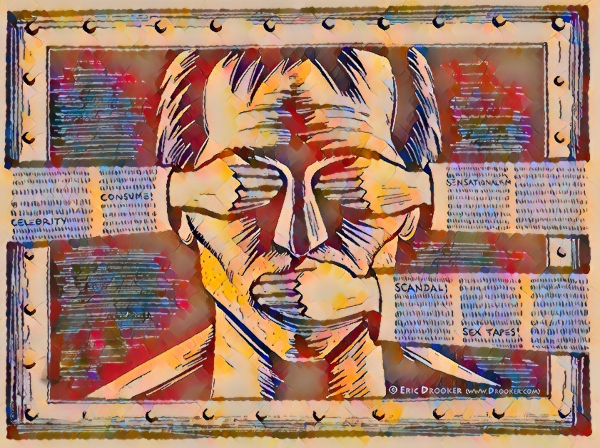
The cost of silence
South Asia knows the cost of silence. We in Bangladesh still carry the collective memory of 1971, when political dehumanization turned to genocide. History is not repeating itself exactly—but its rhyme is unmistakable.
The international community must recognize what is at stake. Condemnation must be clear and targeted—not against India as a nation, but against the dangerous ideology that now guides its leadership.
Democracies cannot afford to look away as one of the world’s largest nations edges closer to the precipice. The cost of inaction, we have learned, is always paid in human lives.
But ideology alone does not spark genocide—violence operationalizes it.
The consequences of Hindutva’s rise are already felt in the blood-soaked streets and shattered homes of Indian Muslims. The 2020 Delhi riots left 53 dead, most of them Muslims.
The violence bore the hallmarks of organized pogroms: Hindutva mobs, some linked to RSS-affiliated groups, roamed neighborhoods, torching Muslim homes and mosques, while police stood by—or, as several reports allege, actively abetted the carnage.
This pattern is not anomalous. In 2022, nationwide Ram Navami processions turned violent as armed Hindu groups marched into Muslim neighborhoods, attacking residents and vandalizing property.
Rather than condemning the violence, several BJP leaders issued statements that either justified or deflected responsibility.
In 2023, a sitting BJP lawmaker openly called for the erasure of Muslim existence in India. Such statements, barely rebuked by the party or the state, are not rhetorical excesses—they are signals of impunity.
But the violence didn’t begin with Modi. Between 2003 and 2008, a series of bombings—many targeting mosques, Muslim gatherings, or symbolic sites of interfaith cooperation—were linked to RSS and Sangh Parivar-affiliated actors.
In 2003, bombs exploded at a mosque in Parbhani, Maharashtra. In 2008, during Ramadan, a bomb tore through a gathering in Malegaon, killing six and injuring over a hundred.
That same year, 68 people—mostly Pakistani nationals—were killed in the Samjhauta Express bombing. All of these attacks require rigorous scrutiny and legal due process, but the pattern is disturbingly clear:
Muslim spaces are repeatedly chosen as targets in a campaign of terror that matches early-stage genocide indicators.
The United States Holocaust Memorial Museum’s Early Warning Project, in its 2024 risk assessment, ranked India fifth globally for potential mass atrocities, citing “targeted attacks on religious minorities, especially Muslims, combined with a lack of accountability for past violence.”
This is not just bureaucratic concern—it’s a flashing red light.
Gregory Stanton, founder of Genocide Watch and the man who forecasted the Rwandan genocide, has drawn sobering comparisons between Modi’s India and Myanmar’s descent into mass violence against the Rohingya.
We
ignored Myanmar. We should not make that mistake again.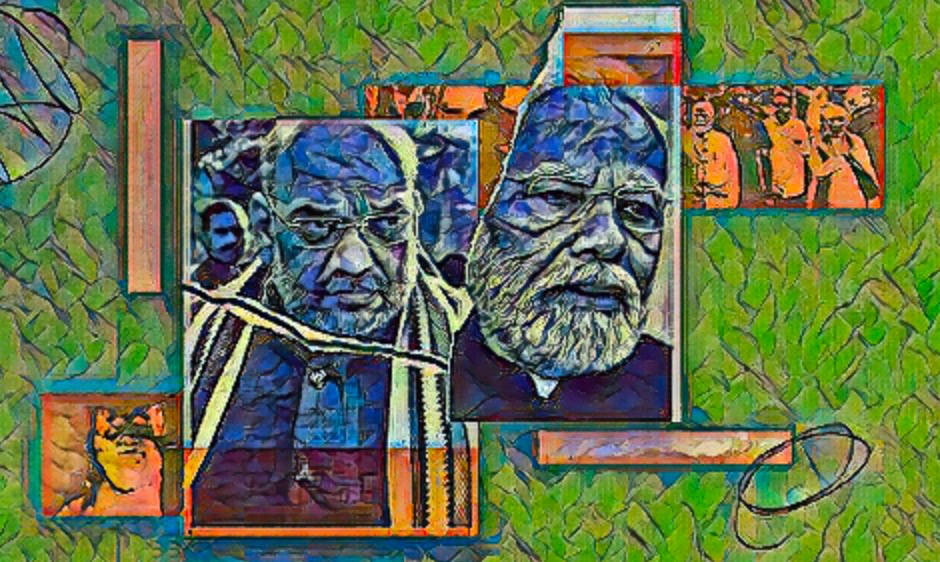
Frontiers of communal attack
Amnesty International has documented the Indian government’s increasing use of “punitive demolitions,” where Muslim homes and businesses are bulldozed following protests or unrest—without due process.
These demolitions are not legal remedies; they are acts of collective punishment aimed at instilling fear, destroying livelihoods, and reinforcing second-class citizenship.
All of this is happening in plain sight. The rhetoric. The laws. The violence. The impunity.
If the world does not respond now—with investigation, sanctions, and a moral line in the sand—it will be complicit in what may become one of the darkest chapters in South Asia’s modern history.
In 2023, the U.S. Commission on International Religious Freedom declared that religious freedom conditions in India had “significantly worsened,” citing the BJP-led government’s policies and failure to address violence against Muslims and other minorities.
The commission recommended that India be designated a Country of Particular Concern—a label usually reserved for the world’s most repressive regimes.
Defenders of the Modi government often dismiss such findings as foreign interference or cultural misunderstanding, arguing that Hindutva merely reflects a resurgence of Hindu pride.
But this narrative collapses under the weight of institutional discrimination, political violence, and the deliberate targeting of minorities.
As Hindus for Human Rights—a U.S.-based advocacy group led by progressive Hindus—bravely put it, Hindutva is not a cultural revival; it is “the systematic targeting of Muslims through hate speech, violence, and discriminatory policies,” and it poses a fundamental threat to India’s secular democracy.
What’s unfolding in India cannot be separated from its ideological roots. Hindutva did not emerge in a vacuum.
Its
architects explicitly admired another ethno-nationalist project: Zionism.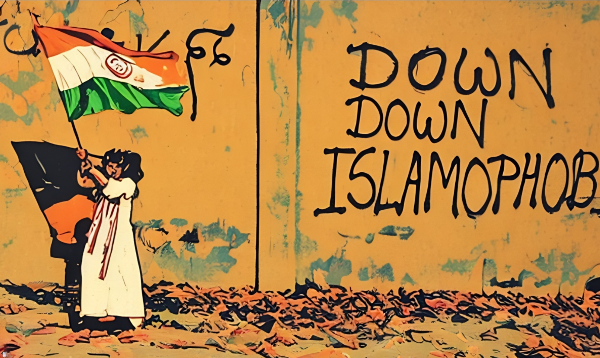
Parallels with zionism
V.D. Savarkar, the father of Hindutva, wrote in 1923 that “if the Zionists’ dreams are ever realized—if Palestine becomes a Jewish state—it will gladden us almost as much as our Jewish friends.”
For Savarkar, both Hindus and Jews were “races” with historic grievances, bound by the shared experience of Muslim rule and entitled to reclaim land through national self-determination.
Savarkar even condemned India’s vote against the 1947 partition of Palestine and advocated for a binational solution in which Jewish sovereignty would not be diluted.
His ideological heir, M.S. Golwalkar, leader of the RSS in the late 1930s, praised Jews for their ethno-religious resilience, declaring that preserving “race, religion, culture, and language” through territorial control was essential for any group seeking redemption from historical trauma.
These are not passing references—they are foundational texts for the modern Hindutva project.
The aspiration to build a Hindu Rashtra was shaped in no small part by a century-long admiration for Zionism’s capacity to establish an exclusionary, militarized ethnostate.
And here lies the most disturbing parallel.
Both Hindutva and Zionism, in their militant and state-backed forms, center the supremacy of one group, sanctify land as exclusive birthright, and treat minorities as existential threats rather than equal citizens.
Both legitimize violence as a tool of sovereignty and use lawfare, surveillance, and militarization to contain and crush dissent.
While the contexts differ—the Jewish experience shaped by genocide and diaspora, the Hindu experience by colonial rule and post-partition trauma—the endgame is eerily similar: to redefine citizenship, ownership, and legitimacy through religious-nationalist exclusion.
This is not theoretical. It is lived experience for millions. The Muslim in Assam, whose family has lived there for generations, but now must prove citizenship. The Kashmiri family whose phones have been dead since 2019. The Muslim child who watches their home bulldozed by state-backed demolition squads after a protest.
The longer the world refuses to confront these ideological roots, the more entrenched the crisis will become.
As a Bangladeshi who has studied and learned the legacies of partition and genocide firsthand, I see clearly what many in the Global North still refuse to: this is not a democracy in distress.
It
is a democracy being dismantled by design.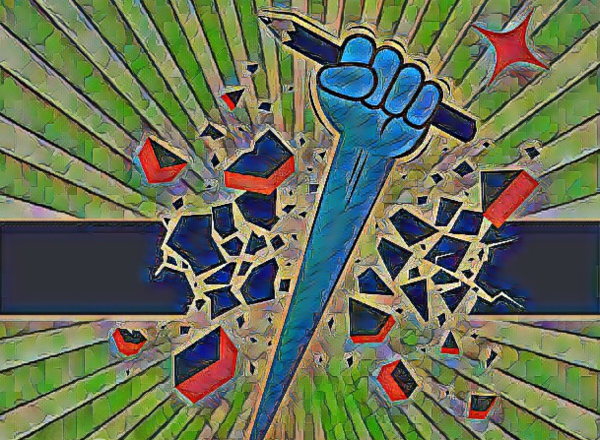
A call to action before it’s too late
The international community can no longer afford to look away. The warnings are not subtle. They are glaring, repeated, and increasingly dire.
To prevent these signals from becoming irreversible outcomes, a coordinated global response is essential.
Consistent diplomatic pressure on New Delhi, robust international human rights monitoring, and active support for civil society and independent journalism within India have become moral imperatives now.
Those who believe in the democratic project must treat the erosion of India’s secular foundation not as a domestic issue, but as a global alarm.
India’s founding vision was not one of religious supremacy, but of pluralism and equal citizenship. In 1947, Jawaharlal Nehru stated, “The sanctity of law can be maintained only so long as it is the expression of the will of the people.”
Today, laws like the Citizenship Amendment Act and proposed Waqf Amendment Act—crafted to marginalize specific communities—stand as betrayals of that vision.
They are not expressions of the people’s will, but of an ideological project that sees difference as danger.
The burden of resistance cannot fall on Muslims alone. It cannot fall solely on Dalits, Christians, Sikhs, or the tribal communities already under siege.
It must be carried by all who wish to preserve India’s diversity—including the Hindu majority. If there is any hope of reversing this descent, it will come from a united front across religious, regional, and ideological lines, rejecting the toxic politics of division.
The stakes are existential. Genocide Watch’s classification of India at Stage 8—Persecution—in the genocidal process is not a rhetorical flourish. It is a historically grounded assessment from the same experts who sounded alarms before Rwanda, Myanmar, and Bosnia.
The world ignored them then. We cannot afford to do so now.
Two hundred million Muslims are not just a number. They are families, communities, histories—woven into the fabric of India and South Asia at large. Their safety is inextricably tied to the region’s peace and democratic future.
Hindutva is not merely a domestic policy platform. It is a dangerous, exclusionary ideology with the potential to destabilize an entire region.
If we in South Asia have learned anything from our shared and often painful history, it is this: ideologies of hate, once normalized, do not fade quietly. They burn.
This is the time to intervene—not with bombs or sanctions, but with clarity, courage, and an unflinching commitment to justice.
Before the next stage begins. Before the fire spreads.
—-
Tahmid Islam is a political analyst and podcaster

